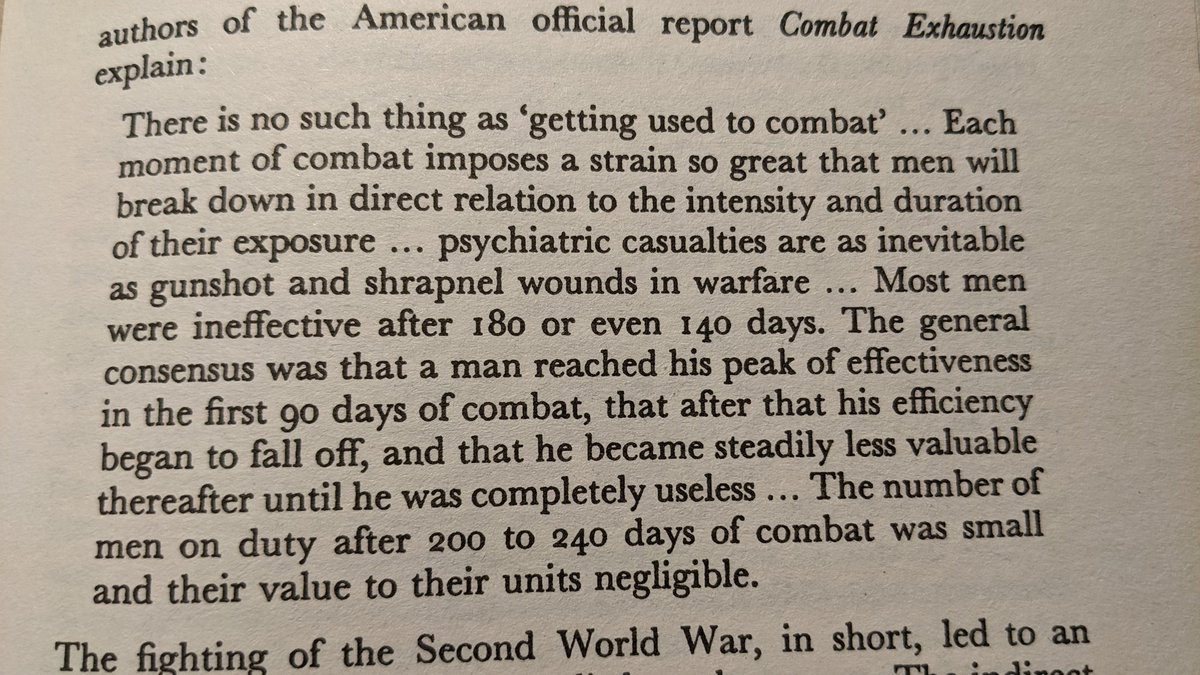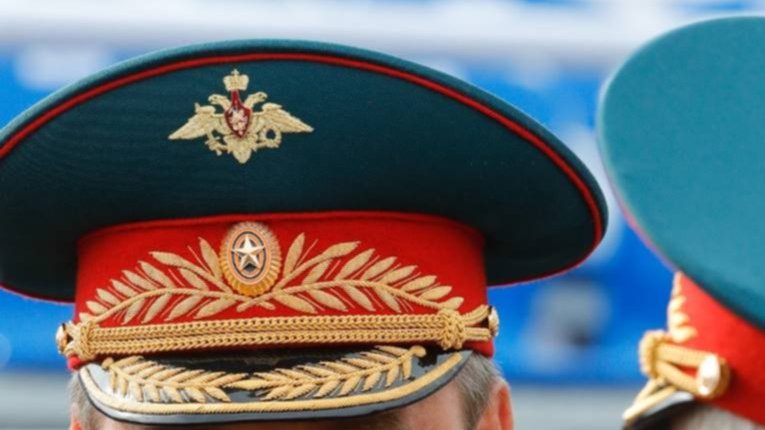
1/ What are the reasons for Russia's Blyatskrieg – its rapid collapse east of Kharkiv – and why might Napoleon Bonaparte have known some of the answers? Here's a 🧵 exploring some possible deeper reasons for Ukraine's stunning successes in recent days.
2/ Without detracting in any way from the heroism of Ukraine's defenders, it's clear that there's been a massive moral collapse among Russia's forces in Kharkiv oblast. They've surrended towns with barely a fight and abandoned vast quantities of equipment.
https://twitter.com/DefenceU/status/1568962748188327937
3/ In 1808, Napoleon wrote: "In war, three-quarters turns on personal character and relations; the balance of manpower and materials counts only for the remaining quarter." (More pithily expressed as "In war, moral power is to physical as three parts out of four.")
4/ With that in mind, over the past couple of months I've been covering Russian soldiers' experiences of the war in several threads (see below), using published intercepted phone calls and personal accounts from soldiers and their relatives.
https://twitter.com/ChrisO_wiki/status/1556386752524320781
5/ Such insights reveal that the Russian army is not in a happy place, even before its latest setbacks. Morale is low, training is poor, food is awful, equipment is inadequate, welfare and training is neglected, and commanders are seen as dishonest, uncaring and incompetent.
6/ These factors have already led thousands of Russian soldiers to quit their contracts and return to Russia (which they can do, as they have that right in what's still officially a peacetime establishment - it's a 'special military operation', not a war). Let's review.
7/ GOALS: Most of those in the first wave on 24 February didn't know they were going to be invading Ukraine, and many didn't even know they had crossed the border before people started shooting at them. Large numbers deserted almost immediately.
8/ Putin's propaganda about 'denazifying and demilitarising' Ukraine seems to have attracted mixed responses. Some believed it, others – especially after interactions with Ukrainian civilians – realised it was a lie.
9/ Russia's goals have been shifting, confused and unclear, particularly after it became apparent that overthrowing the Kyiv government was not going to happen. Knowing why you're fighting is fundamental to military success.
10/ MOTIVATION: "A man does not have himself killed for a half pence a day or for a petty distinction. You must speak to the soul in order to electrify him." – Napoleon again.
It's been very apparent from Russian soldiers' accounts that personal motivation is lacking.
It's been very apparent from Russian soldiers' accounts that personal motivation is lacking.
11/ The Russian army is disproportionally manned by people from people from poorer regions and lower socioeconomic groups (especially non-Russian ethnic minorities) who see military service as a means of economic or social advancement. But most didn't join to fight wars.
12/ With the exception of Chechnya, Russia's military interventions have had few or relatively light casualties (Transnistria, Abkhazia, Bosnia, Crimea, Donbas 2014, South Ossetia, Syria, Kazakhstan). Military service was very compatible with staying alive – an important factor.
13/ This equation changes very substantially in a war with very high casualties (and the Ukraine war, on present trends, is likely to be one of the deadliest globally in the last 200 years). Serving now has a high probability of death or injury, and a certainty of much misery. 

14/ Evidence from intercepted calls and personal accounts shows that heavy casualties have, unsurprisingly, been very demotivating for Russian soldiers, some of whom have experienced their entire units being wiped out.
https://twitter.com/ChrisO_wiki/status/1555817656854499328
15/ EQUIPMENT: A constant complaint has been the lack and poor quality of equipment. Tanks reportedly arrived from depots without vital equipment (or even working engines), ammunition was scarce, first-aid kits were basic and decades out of date, body armour wasn't supplied.
16/ For example, the former paratrooper Pavel Filatyev – a member of an elite unit – says that he was sent to Ukraine with a broken machine gun which he had to fix himself, and wasn't given any body armour or infantry gear, which he had to find himself.
17/ Many Russian soldiers have had to buy their own equipment – even the latest military radios – at their own expense on Avito, Russia's equivalent of eBay, where it was likely being sold by corrupt military depot personnel who had stolen it from Russian army supplies. 



18/ Equipment losses in the field have been immense. Soldiers have spoken of motorised brigades losing most of their armour, bases being wiped out by HIMARS strikes, even their own boots and uniforms falling apart – with little or no replenishment due to poor logistics.
19/ Troops from the LNR/DNR puppet republics have been given even worse equipment, such as World War II helmets, 1898-pattern Moisin-Nagent rifles and no body armour, while simultaneously being starved of supplies by the Russian army in retaliation for disagreements. 

20/ FOOD: Speaking of starvation, soldiers on both the northern and southern fronts rapidly ran out of food after the invasion. Before the attack on Kyiv they were given only 3 days' worth of food, leading to near-starving soldiers looting supplies from Ukrainian civilians. 

21/ Logistical breakdowns in the south led to soldiers surviving on one ration pack per person every two days, then running out entirely. The products of food kitchens were so bad they were inedible and rejected even by hungry soldiers.
22/ Resupply was hampered by severe corruption in the Russian supply chain. One soldier reported: "conscripts who were delivering [food] to our unit in Ukraine stole from it three crates of canned meat and sold it in our unit for 70 rubles each." Packages from home were stolen.
23/ Relatedly, conditions in the field have reportedly been terrible. Soldiers reported not even being given spades to dig trenches and shelters. They've suffered frostbite and plagues of mosquitoes while living in abject squalor.
https://twitter.com/ChrisO_wiki/status/1567793450292060160
24/ Perhaps most infamously, apparently unbriefed Russian troops dug themselves into trenches and dugouts in Chernobyl's Red Forest, the most radioactive area on the planet. They were subsequently reported to have been taken to hospital suffering from radiation exposure.
25/ Soldiers have reported that frontline medical treatment has been severely deficient, with medics lacking even basics like usable tourniquets and bandages, and with no evacuation. It's likely that many injured Russians have simply bled to death from entirely survivable wounds. 

26/ LACK OF TRAINING: Many soldiers speak of almost farcically low levels of pre-war training. One went "to shooting practice four times, where each time I fired 6 rounds". At the start of the invasion, some were assigned to weapons systems that they'd never used before.
27/ Training activities were often faked for the benefit of senior officers. One soldier said: "We would arrive at a firing range and stand with a rifle pointed at the target. And as soon you’re photographed, you are free to go." Medical exercises consisted of posed photoshoots. 

28/ This kind of fakery has been reported not only in ordinary infantry divisions, but even in elite forces such as Russia's paratroop brigades (the VDV) – suggesting that it's common practice across the entire army.
29/ MISTREATMENT: Russia's soldiers in Ukraine work under contracts – under the current peacetime rules, they can quit at any time if they follow certain procedures. But contract soldiers have reported increasingly severe mistreatment as manpower shortages bite. 

30/ While thousands have reportedly managed to leave, many have reported the Russian army obstructing them through putting up bureaucratic obstacles or worse. Some have reportedly been imprisoned and beaten to persuade them to return to the front.
https://twitter.com/ChrisO_wiki/status/1555315302547832834
31/ Contracts are only supposed to run for a year at a time. Soldiers have reported not being allowed to leave even when their contracts have expired, at which point they are not even legally being employed. Others have reported not being paid.
32/ Soldiers should also be rotated off the front line regularly – the extract below from John Keegan's classic 'The Face of Battle' explains why. But Russia's undermanned invasion has meant increasingly exhausted troops staying on the front line for 6 months or more. 

33/ In contrast with Ukraine, which has much greater manpower (thanks to national mobilisation and a formal state of war), Russia simply doesn't have the reserves to allow its exhausted and demoralised soldiers time to rest and recuperate in safety. This has led to mass mutinies.
34/ BAD LEADERSHIP: A seemingly universal complaint is the poor quality of leadership in senior ranks. As Pavel Filatyev puts it, "the top doesn't give a shit about us, they demonstrate in every possible way that we are inhumans for them, we are just like cattle."
35/ Filatyev, like other soldiers, is scathing about the cowardice and dishonesty of commanders, who they say stay in bunkers while they order their men into suicidal assaults. They reportedly inflate their troop numbers and submit fake reports of success to their superiors. 

36/ Soldiers report brutal confrontations between senior commanders and their men, including threats and physical violence. One reported his unit's political officer firing into the ground at the men's feet. Another soldier held a grenade in a general's face and pulled the pin.
37/ Captured and injured Russian soldiers are reported to have been killed by their own side to prevent the Ukrainians capturing them. One soldier reported that Russian soldiers being led into captivity by Ukrainians were deliberately hit with a Russian anti-tank guided missile.
38/ In one very recent instance, the Ukrainian army reported its drone operators seeing Russian troops shooting other Russian soldiers who were escaping from Ukrainian artillery fire - perhaps an example of Stalin-era blocking tactics being revived. armyfm.com.ua/ua/rosijski-ko…
39/ Others have reported Russian commanders shooting their wounded (see video below) to keep them out of Ukrainian hands. While this likely isn't typical, the fact that it has apparently happened at all speaks volumes about Russian senior officer culture.
40/ All of these problems are likely to have cumulatively eroded the Russian army's willingness to fight. They're not simply the result of individual bad decisions, nor even of Putin's mistakes, but of an entire military system that has rotted and corrupted into ineffectiveness.
41/ @paulkrugman describes what's happened as "Dornbusch's Law in action ... the inevitable crisis takes longer to come than you can imagine, but when it does come it happens faster than you can imagine." This crisis has been brewing for decades. It's not over yet. /end
• • •
Missing some Tweet in this thread? You can try to
force a refresh




